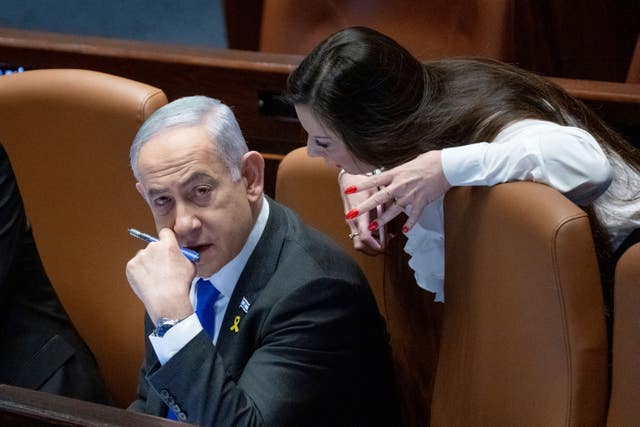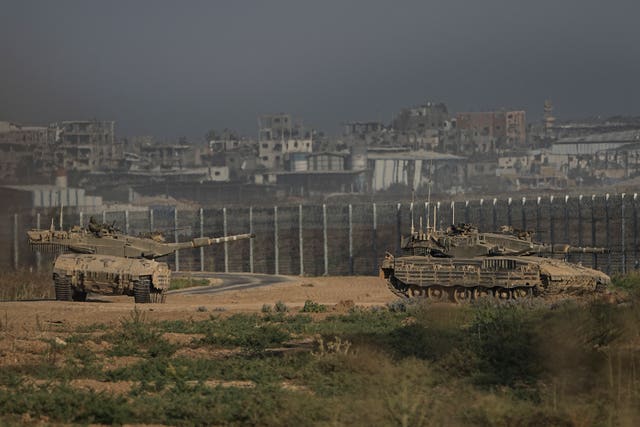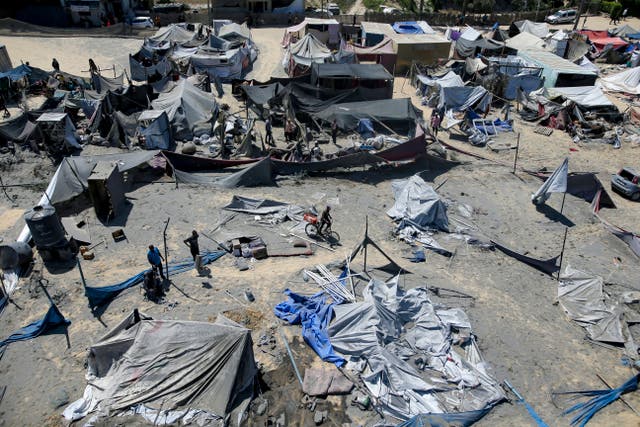Israeli minister visits sensitive Jerusalem holy site, threatening Gaza talks
The move threatens to disrupt sensitive negotiations aimed at reaching a ceasefire in the nine-month-old Israel-Hamas war.

Israel’s national security minister visited Jerusalem’s most sensitive holy site on Thursday, threatening to disrupt Gaza ceasefire talks.
Itamar Ben-Gvir, an ultranationalist settler leader, said he had gone up to the contested Jerusalem hilltop compound of Al Aqsa Mosque to pray for the return of the hostages “but without a reckless deal, without surrendering”.
The move threatens to disrupt sensitive talks aimed at reaching a ceasefire in the nine-month-old Israel-Hamas war. Israeli negotiators landed in Egypt on Wednesday to continue talks.
Mr Ben-Gvir’s visit also came just days before Prime Minister Benjamin Netanyahu leaves for a trip to the United States, where he will address Congress.

Mr Ben-Gvir last visited the site in May, to protest against countries unilaterally recognising Palestinian statehood.
He has been convicted eight times for offences including racism and supporting a terrorist organisation. As a teenager, his views were so extreme that the army banned him from compulsory military service.
As security minister, Mr Ben-Gvir oversees the country’s police force. As a key coalition partner, he also has the power to rob Mr Netanyahu of his parliamentary majority and try to force early elections.

The Palestinian foreign ministry condemned Mr Ben-Gvir’s visit as a “provocative intrusion” that endangered the fragile status quo regarding the Jerusalem hilltop compound, which is considered holy for both Muslims and Jews.
The site is revered by Jews as the Temple Mount, and by Muslims as Haram al-Sharif, a holy site and important national symbol.
Mr Ben-Gvir has frequently visited the site during times of conflict, drawing condemnation. Tensions over the compound have fuelled past rounds of violence.
In an overnight session that lasted into Thursday morning, Israel’s parliament overwhelmingly passed a resolution rejecting the establishment of a Palestinian state. The vote was largely symbolic and meant to send a message ahead of Mr Netanyahu’s trip to the US.

In recent weeks, Israel has stepped up strikes in central Gaza, where many Palestinians have fled to escape fighting in other parts of the beleaguered territory.
The war in Gaza, which was sparked by Hamas’ October 7 attack on southern Israel, has killed more than 38,600 people, according to the territory’s Health Ministry, which does not distinguish between combatants and civilians in its count.
The war has created a humanitarian catastrophe in the coastal Palestinian territory, displaced most of its 2.3 million population and triggered widespread hunger.
Hamas’ October attack killed 1,200 people, mostly civilians, and militants took about 250 hostage. About 120 remain in captivity, with about a third of them believed to be dead, according to Israeli authorities.





